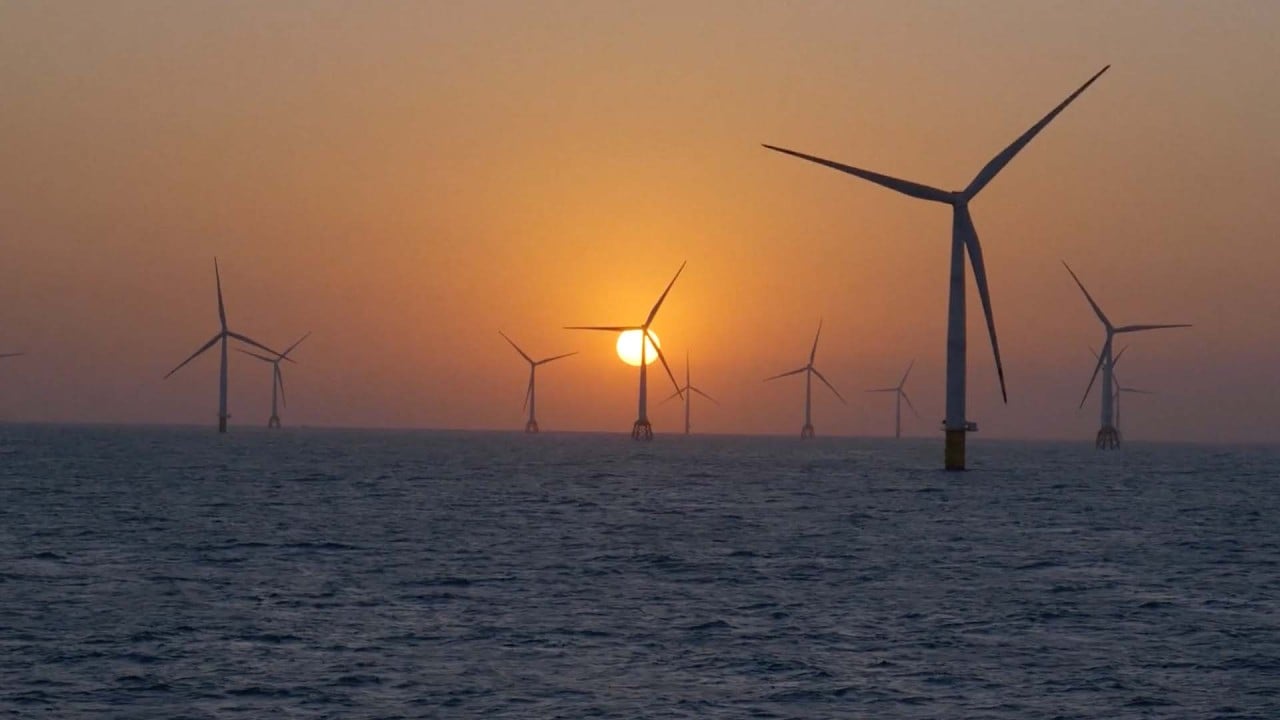
01:50
China scales back emissions target with half of new electricity use to come from renewables by 2025

Climate mitigation will present enormous business opportunities, and half of them can be found in Asia, according to Mark Carney, the United Nations Special Envoy on Climate and Finance.
Financial institutions, through their lending and underwriting activities, can play a key role in driving greenhouse gas reductions by polluters across the world, he told the Global Financial Leaders’ Investment Summit on Wednesday.
This can be achieved through mandatory disclosure of emissions and reduction plans, so that polluters’ climate risks and opportunities can be properly reflected in their market valuation and borrowing costs.
“As it becomes increasingly apparent who is on track or who is converging to the track, they are going to get a valuation premium,” Carney said during a “fireside chat” with Norman Chan, former boss of the Hong Kong Monetary Authority, which organised the conference.
“All that ties up together to this enormous opportunity, and 50 per cent of that opportunity is in Asia. Having a financial sector that is at the centre of this focus … means the sector is highly competitive.”
Some US$100 trillion of investment will be needed for the world to reach net-zero greenhouse gas emissions in the next three decades, around 3 per cent of global gross domestic product over the same period, according to BNY Mellon Investment Management.
“That is a reasonable estimate of the incremental amount of investment in energy transition alone, which accounts for three quarters of total emissions,” said Carney, a former governor of the Bank of England and the Bank of Canada.
He is currently vice-chairman at Toronto-based Brookfield Asset Management, where he leads the firm’s environmental, social and governance (ESG) business and impact fund investment strategy.
He is also co-chairman of the Glasgow Financial Alliance for Net Zero (GFANZ), a group of financial institutions working together to accelerate the transition to a net-zero global economy.
Alignment with global climate goals will be an increasingly important determinant of a company’s competitiveness and market value, Carney said.
“On top of risk management and the social licence issue, it is about running companies better, particularly in an environment where climate policy is becoming [clearer] and more aggressive,” he said.
A social licence to operate (SLO) refers to the perceptions of local stakeholders that a project or company is socially acceptable or legitimate.
Despite the UN’s warning last week that global environmental measures are inadequate and concerns that rising geopolitical tensions and the risk of a global recession will erode countries’ willingness to make further commitments at upcoming global climate talks, Carney said there are reasons to be optimistic.
Global warming was predicted to reach 3.5 degrees by the end of this century when the Paris Agreement was signed seven years ago. This has been pared to 2.5 degrees based on policies already in place, he said, citing International Energy Agency estimates.
The target can be further reduced to 1.7 degrees if governments come up with credible implementation plans for their their long-term climate ambitions.
Moreover, some 550 financial institutions overseeing US$150 trillion of assets have now joined GFANZ, up from 160 and US$60 trillion when it was formed in April last year.
Among the signatories, around 250 have already submitted implementation plans for their net-zero emissions targets, while 160 more are due to present theirs soon, he noted.
Some 53 institutions have made pledges to drive their financed activities down to net-zero by 2030.
That figure is expected to rise to 60 later this month during the COP27 global climate summit in Sharm el-Sheikh, Egypt, he said.
“It is ahead of schedule because people are moving at pace. These are highly sophisticated institutions, [having their plans approved] through the board,” he said.
In September, a GFANZ steering committee comprising regulators, policymakers, data providers and standard setters proposed to establish the world’s first publicly accessible climate transition database.
It aims to provide trusted and verifiable data on companies and financial institutions’ carbon footprints, climate targets and actions, so that consumers can play a role in accelerating climate mitigation through their spending decisions.